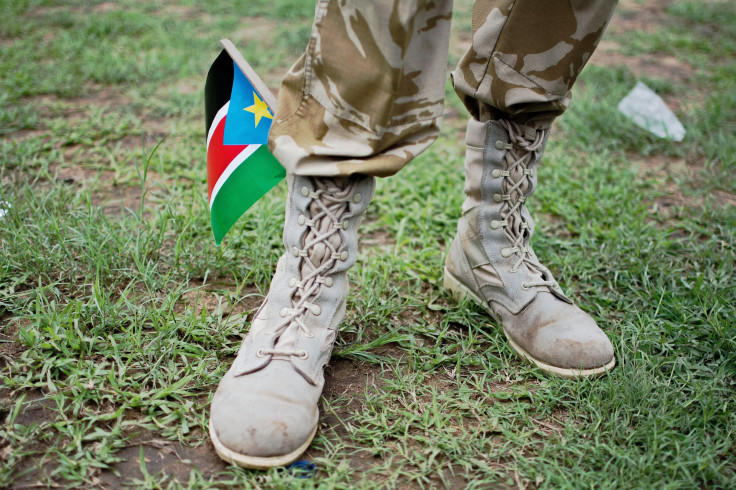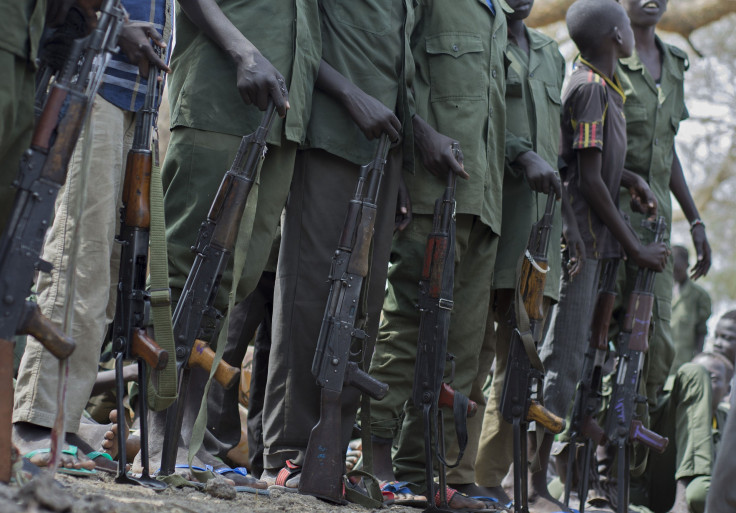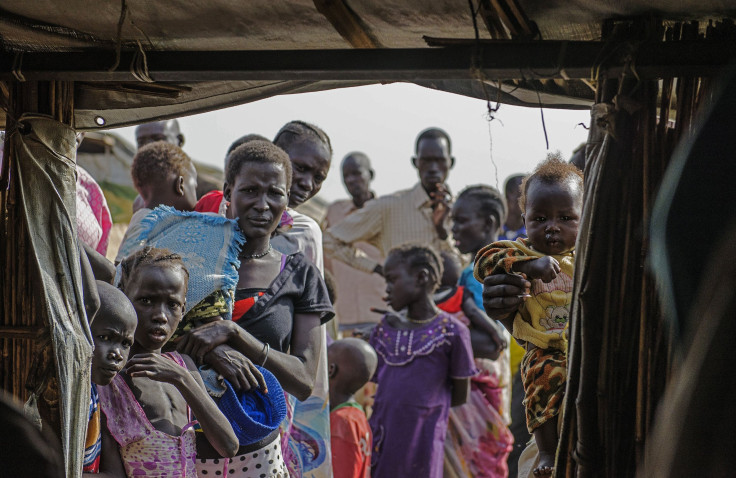South Sudan Peace Talks Resume With High Stakes But Little Hope For Resolution

The world’s youngest nation faces an all-but-impossible task -- to end a 19-month-long civil conflict in one week. Amid a violent power-struggle and revived ethnic tensions, South Sudan’s warring sides have come under immense international pressure to reach a peace deal by Aug. 17 or suffer sanctions. President Salva Kiir and rebel leader Riek Machar resumed negotiations in the Ethiopian capital of Addis Adaba this week, after months of fighting since the last round of talks collapsed in March.
But the two sides, which are vying for power over oil-rich South Sudan, have already expressed discontent with a power-sharing deal recommended by the Intergovernmental Authority on Development, an East African bloc that is mediating the peace talks. Kiir wrote to the regional mediators, saying peace cannot be reached under duress, and high-ranking South Sudanese army officers warned that a new fight with the armed opposition group will emerge if changes are not made to the proposed deal before signing. Meanwhile, the rebels said Kiir’s government had lost its legitimacy and should have no say in the negotiations. With just days left until the deadline, experts said the prospect of peace is grim and the future of South Sudan appears bleak.
“I’m not optimistic at all that a deal will be implemented,” said David Shinn, a lecturer in African affairs at George Washington University in Washington, D.C., and a former U.S. ambassador to Ethiopia and Burkina Faso. “Neither side has shown any willingness to compromise in any kind of serious way.”
South Sudan, which became independent in 2011, slid into civil war after Kiir sacked his deputy Machar and accused him of plotting to overthrow the government. Fighting erupted in December 2013 between forces loyal to the president and rebels allied with Machar. The conflict has claimed more than 10,000 lives and displaced another 1.5 million people, with hundreds of thousands of South Sudanese seeking refuge in neighboring countries.

Under the auspices of the East African bloc, the peace talks should be a robust national dialogue that includes the various voices within the country of all ethnic groups. But South Sudan is under pressure to reach a deal fast. The United States has threatened sanctions through the United Nations or European Union if the warring factions can’t sign an agreement by Aug. 17, which would be difficult to impose on a rebel group. And even if Kiir and Machar do sign a deal, agreeing to lay down arms and split power, it is only a short-term solution. A ceasefire and transitional government will not solve South Sudan’s lack of institutions that would prevent government corruption or another power struggle from emerging, according to experts.
“The country is falling apart because everything is in the hands of two people,” said John Mbaku, a nonresident senior fellow with the Africa Growth Initiative at Brookings Institution in Washington. “But no matter who you bring in, if the structure that you have in the country remains the same, you’re not going to see any change.”
The Intergovernmental Authority on Development’s draft agreement has proposed a compromise on power-sharing in a transitional government that would give Kiir’s ruling Sudan People’s Liberation Movement the positions of the president and vice president, a majority in the legislature and 53 percent of ministerial portfolios. Machar and his faction would have the second largest number of seats in the National Assembly, along with the new position of first vice president and 33 percent of ministerial portfolios. The remaining parliamentary seats and 14 percent of ministerial portfolios would be shared among other opposition groups in the transitional government, which would become active three months after signing the peace deal.
The deal also calls for giving Machar and his rebel group 53 percent of ministerial portfolios in the Greater Upper Nile region, which hosts the country’s oilfields and has been hit hardest by the civil conflict, and 33 percent to Kiir’s government, according to VOA News. In a country where oil accounts for 98 percent of state revenues, experts said South Sudan’s current government is not likely to sign such an agreement.

The civil conflict has reopened old wounds between two of the nation’s largest ethnic groups – Kiir’s Dinka people and Machar’s Nuer. Experts said the proposed deal essentially puts the country’s wealth and power in the hands of these two leaders and their tribes, excluding the dozens of other ethnic groups that inhabit South Sudan, which has great ethnic and linguistic diversity. If the Intergovernmental Authority on Development fails to include other groups in a final peace deal, it could bring more hardship to South Sudan.
“They frame the conflict as solely between the two belligerents, ignoring the fact that any deal that rewards and privileges the two will set in motion additional conflicts,” said Alex de Waal, executive director of the World Peace Foundation at Tufts University in Massachusetts and an expert on South Sudan. “The exclusion of other political actors from the peace process makes it likely that any deal between today's protagonists will generate exclusion and grievance that lead to new conflict.”
Despite its wealth of natural resources, South Sudan is one of Africa's least developed nations. Nearly 70 percent of the population, or 7.9 million people, are expected to face hunger during the current rainy season, the United Nations said. The civil war coupled with crooked leadership has prevented the country from investing in its people and developing its land. And while both Kiir and Machar want peace, they are only willing to sign an agreement on their terms.
“South Sudan has huge, huge potential. This really should be a rich country. It all boils down to leadership, rule of law, lack of trust and institutions that work or don’t work,” said Paul Sullivan, an expert on South Sudan who is also an economics professor at National Defense University and an adjunct professor of security studies at Georgetown University in Washington. “If South Sudan doesn’t get its act together soon, it will be a continuous disaster."
© Copyright IBTimes 2025. All rights reserved.





















